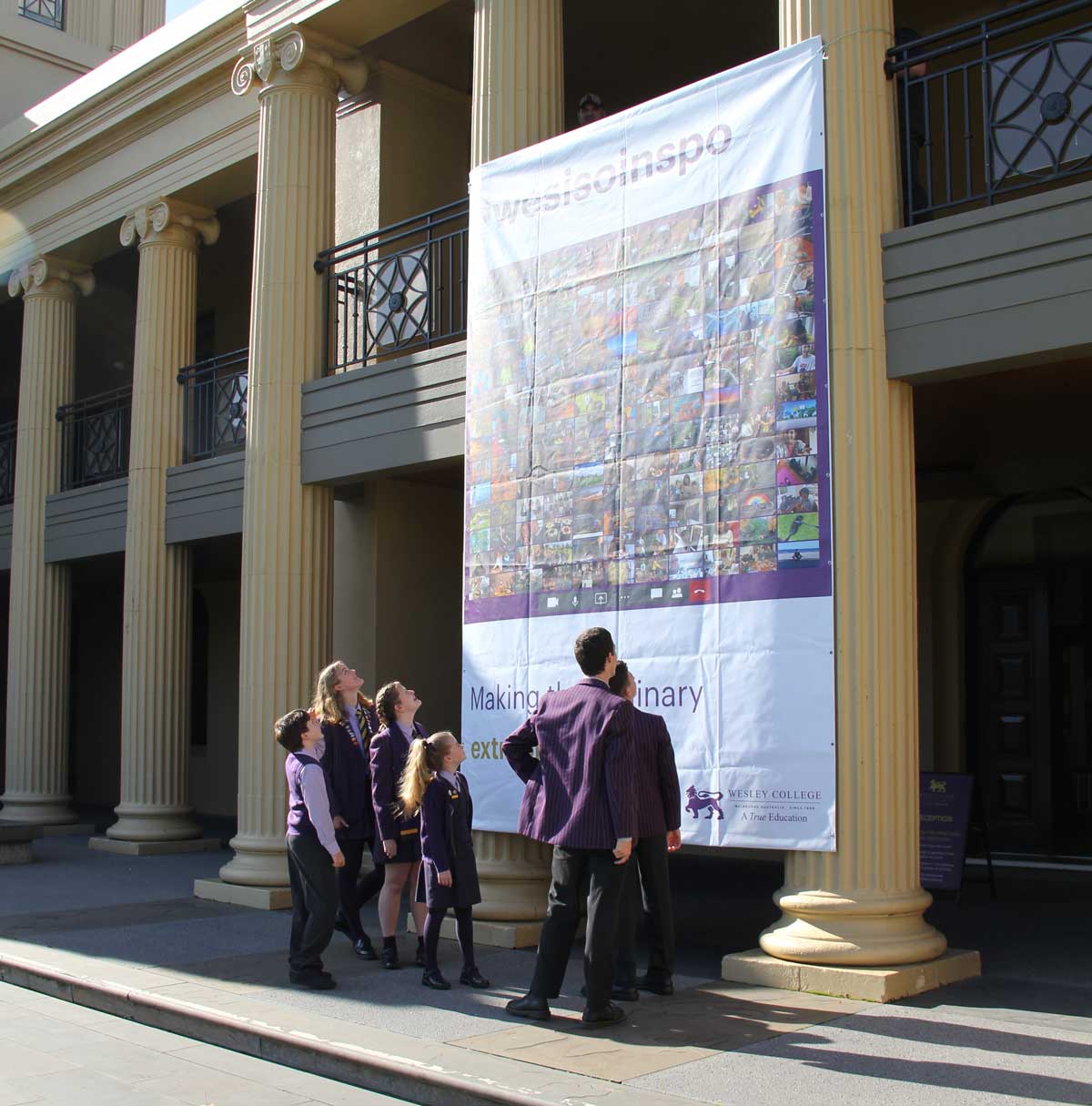
When we returned to on-campus learning at Wesley, the excitement was palpable, but our experiences in the virtual classroom environment also gave us plenty of insights into exciting ways students can collaborate on campus and teachers can support that collaboration using online tools. Could collaborative elements of the online learning program support our on-campus approach? Rob Gow has some answers.
Back in March, when campuses were about to be closed and Wesley implemented its plan for teaching in virtual classrooms, the remote learning program was driven by government-mandated measures to curb the spread of COVID-19. Our rapid implementation of online learning from home was certainly a challenge, but campus staff had long been working with colleagues from the Wesley College Institute on a curriculum-driven strategy to deliver online learning on campus, and on the best software programs and platforms to support that strategy.
The challenge, in fact, was also an opportunity to implement and test new models of online learning and develop new ways of using technologies that we can continue now we’re back on campus. Teachers have had the opportunity to test different learning solutions and understand how technologies can be best used to foster deeper learning. It’s been an opportunity for reflection, as teachers have been thinking creatively about their role as facilitators of student learning. And, crucially, it’s encouraged collaboration – between staff, between students and between staff and students.
In fact collaboration between staff and students has been a highlight of the remote learning program. Collaboration is an essential soft skill that leads to success, not only in education but in the workforce and throughout adulthood. As Alison Wray and Sue Bester explain in ‘Soft skills development doesn't need to be hard,’ collaboration underpins the top 10 soft skills identified by chief human resources and strategy officers from leading global employers in 2016 as being crucial in 2020. As those HR and strategy officers presciently identified, skills from complex problem-solving to coordinating with others to being able to adjust in response to a changing situation have never been more important than right now.
Share and share alike
We’ve seen students partnering and collaborating online: engaging in robust conversations; checking in with peers and helping each other; sharing files, videos, notes and other resources; completing rubrics; sharing learning apps; taking part in live lessons; and most importantly sharing and receiving feedback with their teachers and peers.
Teachers and other staff have also been collaborating and learning during one-to-one groups and classes. As a teacher and Head of Middle School, I’ve particularly enjoyed the asynchronous chat function of MS Teams Group channels that has encouraged my collaboration and problem solving with students and colleagues. Mimicking the social media environment many of our students experience, the MS Teams chat environment enables students to ask questions – of me and one another – when they’re working independently or together during MS Teams live lessons. It’s been interesting to see students flag if they have queries or problems but also offer solutions. Online learning has enabled lots of collaboration and sharing through MS Chat, Forms and OneNote. Collaboration at Wesley has also taken the next step, with parents taking part in live video and community forums. Perhaps most importantly, the MS Teams video and chat environments have also meant students see staff collaborating with one another and modelling collaborative language, strategies and attitudes.
Online learning on campus
What of the future? In Australia so far, we have been relatively successful in containing COVID-19, but the pandemic is by no means over. In the short term, our focus as we return to on-campus learning is about two things: firstly, maintaining public health measures and keeping our community safe; and, secondly, maintaining our readiness to reboot remote learning – should the need arise.
In the medium term, our focus is on identifying the teaching and learning practices we’ve found most effectively support learning and embedding them in our ongoing programs. Teachers and school leaders are working with Dean Pearman and his Wesley College Institute colleagues to embed the best of the remote learning experience in our on-campus programs. After all, if online programs enabled learning anywhere, that includes on campus.
In the long term, the hybrid approach we’re building will mean our graduating students will be ready to collaborate in the flexible workplace of the future, a hybrid workplace that is evolving right now as a result of the global response of enterprises to COVID-19. Our graduating students will work with people from all over the world, some of whom they will never meet face to face as work environments become more collaborative and global each day.
Teamwork needs team players
To return to Wray and Bester’s examination of soft skills, business leaders know their workers can be trained in technical skills, but what they really need is people who come prepared to collaborate as genuine team players in a world more focussed than ever on teams. As Ron Markezich, corporate vice president in charge of Office 365 at Microsoft, explained in 2017, ‘There is a growing trend of increased diversity in collaboration. Different locations of work, generations and work styles of employees are driving a more robust expectation of collaboration and communication.’ Not only that, Markezich points out, ‘People work on two times as many teams today as they did just five years ago, and we see that trend increasing.’
Remote learning has enabled Wesley students and staff to develop as digital collaborators with the collaborative skills, knowledge and attitudes to work together across a variety of settings. We look forward to reflecting with our students on the skills and knowledge they have developed recently and how this can positively impact their learning now and into the future
Robert Gow is Head of Middle School at Wesley’s St Kilda Road Campus
